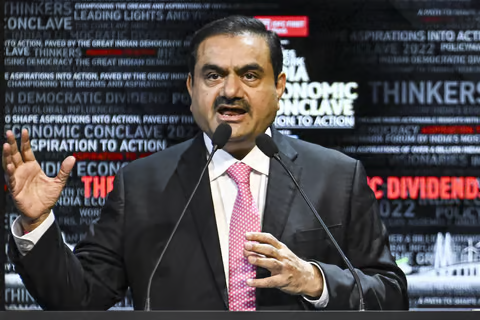The Adani Group is under scrutiny following allegations of selling low-quality coal as high-value fuel to an Indian state power utility. The accusations, based on documents reviewed by the Financial Times (FT) and secured by the Organized Crime and Corruption Reporting Project (OCCRP), suggest a significant coal scam that could have serious environmental and economic implications.
Evidence indicates that Adani may have falsely represented the quality of coal supplied to the Tamil Nadu Generation and Distribution Company (Tangedco). In January 2014, invoices show that Adani purchased a shipment of Indonesian coal with a calorific value of 3,500 calories per kilogram but sold it to Tangedco as 6,000-calorie coal, a much higher grade and value. This grade inflation potentially allowed Adani to more than double its profits from the transaction.
The FT’s investigation reveals that this was not an isolated incident. Documentation for 22 additional shipments in 2014 shows a consistent pattern of grade inflation, involving the supply of 1.5 million tonnes of coal to Tangedco. These transactions were priced at an average of $86 per tonne, aligning with market prices for the higher-grade 6,000-calorie coal, despite the actual low-grade quality of the fuel sourced from Indonesia.
Adani has denied the allegations of inflating coal prices and insists on the legitimacy of its transactions. However, the evidence raises serious questions about the group’s business practices, especially as it seeks to transition into a major player in the renewable energy sector, including the development of a large wind and solar park in Khavda near the Pakistan border.
This controversy comes on the heels of another report from October 2023 by FT, which claims that Adani imported billions of dollars worth of coal at prices significantly above market value. The report suggests that Adani used offshore intermediaries in Taiwan, Dubai, and Singapore to import $5 billion worth of coal at inflated prices. These practices have led to Indian consumers and businesses overpaying for electricity, further compounding the economic impact of the alleged fraud.
The documents indicate that one of the intermediary companies involved in these transactions is owned by a Taiwanese businessman recently identified as a substantial hidden shareholder in Adani companies. This connection adds another layer of complexity to the ongoing investigation into Adani’s business operations and its impact on the Indian economy.
As the Adani Group continues to deny any wrongdoing, the allegations have sparked a broader discussion about corporate governance and transparency in India. The outcome of this investigation could have significant repercussions for the conglomerate and the wider business community in India, highlighting the need for stricter regulatory oversight and accountability.
The case underscores the importance of maintaining integrity in business practices, especially for companies that play a crucial role in national infrastructure and economic development. As the investigation unfolds, stakeholders will be closely watching to see how the allegations are addressed and what measures will be taken to prevent such incidents in the future.

